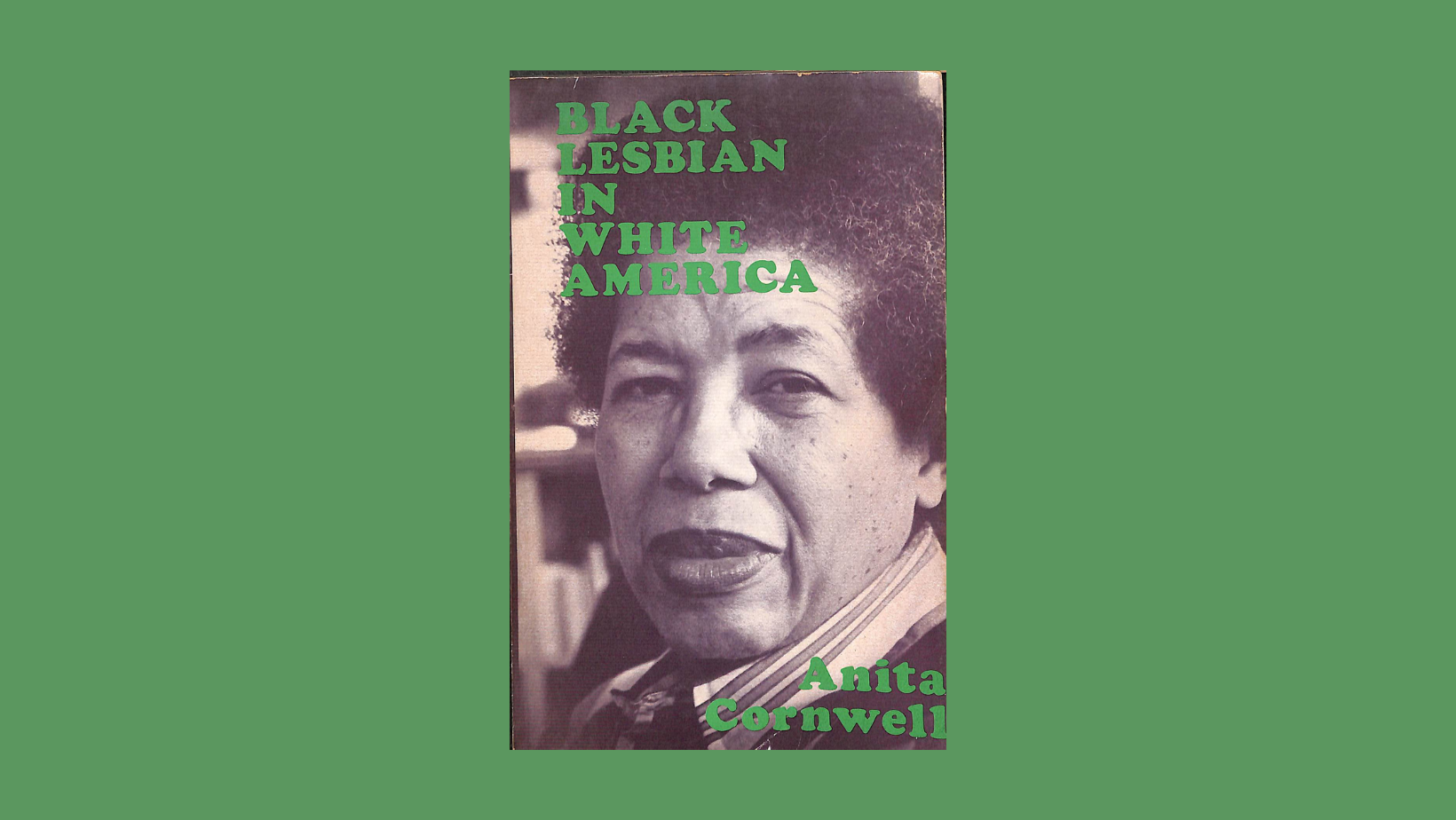I don’t know when it started, but I’ve always had a passion for out-of-print books. Maybe it’s that I’ve always felt more at home in a messy used bookstore than a pristine one featuring only first-run titles. Maybe it’s that I can’t let go of the tantalizing promise of a hidden gem, a book that no one has read since its first printing, something containing a truth too real to have broken through to the mainstream.
I don’t know. All I know is that some of the best books I’ve ever read are, and remain, out of print, and Southern lesbian writer Anita Cornwell’s “Black Lesbian in White America” is one of them.
Often labeled the first collected book of essays and stories by a Black lesbian, Cornwell’s collection—published by Naiad Press in 1983—features musings from Cornwell on sisterhood, Blackness, and the disappointing lack of intersectionality in the movement in the 60s, 70s and 80s. Cornwell’s is like a voice from the future, showing up in the 70s to set the record straight.
Related: How Naiad Press Changed Lesbian Genre Fiction Forever
“How many positive, non-stereotypical roles do you find womyn of any color playing on the silver screen?” She asks in “Some Notes on the Black Lesbian and Womin-Identified-Womin Concept.” Discussing the inability of white feminists to so much as acknowledge Black queer activists, Cornwell states later that: “until all of us can deal with the racism that is endemic to every single movement on the American scene, including the Womyn’s movement, we’re never going to get any place.”
Happy #LesbianDayofVisibility! 🌈✨Here are 12 queer Black writers you should read: @JackieWoodson, @TheBarbaraSmith, @cherylclarke4, @tonidnewman, @staceyannchin, @ndennis_benn, Audre Lorde, Pat Parker, Anita Cornwell, Lorraine Hansberry, June Jordan, and Dionne Brand! pic.twitter.com/guGRfVJpXq
— Well-Read Black Girl Festival ™ (@wellreadblkgirl) April 26, 2018
But “Black Lesbian in White America” isn’t just essays: there’s an interview with Audre Lorde, a mediation on the state of Black Queer representation in the media, and more. The second half of the book is composed of chapters from an unfinished, fictionalized memoir. In it, the narrator Anita (known to her friends as ‘Neet) chases, and eventually starts dating, a gorgeous bisexual femme she knows from work. But the course of true love hardly runs smooth for the two. The memoir is defined by stunningly heartbreaking passages that underline just how close-knit ‘Neet’s Philadelphia lesbian community was. She describes one potential suitor in dazzling terms: “Her poet’s eyes were fixed on Paradise, but she sniffed the air like a discontented wolf.” In one segment, Anita and her girlfriend visit a friend in the hospital, who just before was cracking jokes and showing signs of life. When they arrive, she’s dead.
“How could anyone die so quickly?” She writes. “She never got her hi-fidelity set…How many other unrealized dreams were marching with her wherever she happened to be?”
Later on, describing her and her girlfriend’s first shared apartment, she lets the following drop:
“We had just moved to the neighborhood and were the first Black people on the block in this dinky little apartment. And soon after we moved in I learned that our landlord hanged himself in our basement because things had gone so bad for him he had to rent to Black people.”
It’s these heartbreaking moments that reveal just how much Cornwell can still show us about the world she came from, and the world we’re still living in. Cornwell narrows in on queer Black love as her characters find a refuge from the frustrating, hateful world in each other. And with every description, she puts us in mind of people we know and love, and things we’ve thought to ourselves in the deepest privacy of our minds.
“It was almost like the old times,” Cornwell writes in a bittersweet passage about her first love. “But they never got back together the way they had been in the beginning. People never do, it seems.”♦
Don't forget to share:
Help make sure LGBTQ+ stories are being told...
We can't rely on mainstream media to tell our stories. That's why we don't lock our articles behind a paywall. Will you support our mission with a contribution today?
Cancel anytime · Proudly LGBTQ+ owned and operated
Read More in Entertainment
The Latest on INTO
Subscribe to get a twice-weekly dose of queer news, updates, and insights from the INTO team.
in Your Inbox













